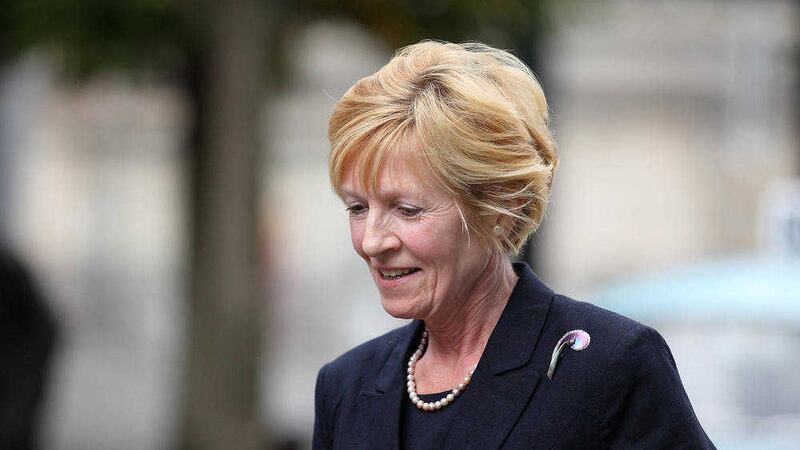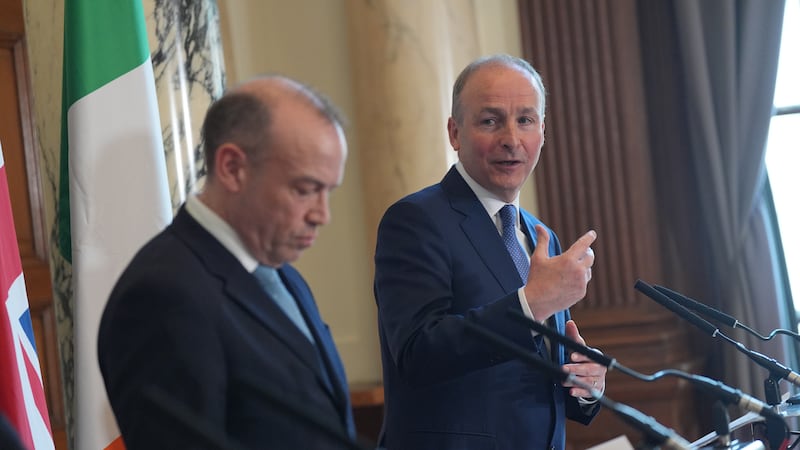Independent North Down MP Lady Sylvia Hermon is pro-EU and remains firmly opposed to Brexit. In February, she joined the SDLP in voting against Article 50 - one of the few MPs to do so.
She sits on Westminster’s Northern Ireland Affairs Committee, which in the absence of Stormont is increasingly where our Brexit debate becomes official. The only threat to her seat in June is from the DUP. It trails well behind her in Westminster elections but wins nearly half her constituency in assembly elections - and in these times of political consolidation, those DUP votes could stick.
So why is nobody offering to stand aside for Lady Hermon? Why is she not even mentioned, let alone approached, in discussions on an anti-Brexit pact?
It cannot be because she is insufficiently ‘progressive’, as the anti-Brexit parties like to describe themselves. She quit the UUP over its links to the Tories and has a generally liberal voting record.
Sinn Féin and the SDLP would clutch their handbags in horror at any suggestion Lady Hermon is being excluded because she is Protestant. That would be sectarian. So her exclusion can only be because she is a unionist.
How was this not noticed during attempts to woo the Green Party? North Down MLA and Green leader Steven Agnew expressed initial interest in an anti-Brexit pact but said it was “essential that it goes beyond the boundaries of nationalism and unionism.”
The best place in Northern Ireland to do that would have been within the boundaries of Agnew’s constituency, where the Greens have by far their highest vote - nearly 14 per cent in the last assembly election - and where this could be uniquely critical in saving an anti-Brexit MP. Even if Lady Hermon has no interest in a pact, ‘progressives’ should have urged the Greens to give her a clear run. Why did they not do so?
Alliance has a much better idea of what is really going on.
Amid rising calls to cooperate with Sinn Féin and the SDLP, leader Naomi Long says her party will not be a “fig leaf for a nationalist pact”. She notes that during the last Westminster election, long before Brexit was on the horizon, Sinn Féin used to term “progressive” to seek a pact with the SDLP. Partly these word-games are just declining the nationalist verb to be: I am progressive, you are sectarian, we are Irish.
Unionists are simpler creatures - they just speak about splitting the vote.
But Brexit offers nationalism far more than a fig-leaf. It represents a chance to disrupt the third bloc in Northern Ireland politics, mainly comprising the Greens and Alliance, before they become an intractable nuisance.
Up until a few months ago, the outline of the next few decades had seemed clear. There would be unionist and nationalist minorities, moderated by a centrist 10 per cent.
Many people foresaw consolidation and pacts around Sinn Féin and the DUP as unionism and nationalism drew level. However, that was not expected to harm the centre - quite the opposite in fact. It meant Sinn Féin and the DUP would have to become more centrist to grow, or Alliance and the Greens would grow instead.
What nobody foresaw was an issue as overwhelming as Brexit, with the potential to destroy this three-way balance by forcing the centre to choose sides.
While most of the hostility to Alliance in recent years has come from unionists and loyalists, the 10 per cent centre scenario is mainly a threat to republicans. It creates an indefinite obstacle to reaching the simple majority required to dissolve the union.
Swallowing the centre whole is not a plausible nationalist objective - Brexit is not that drastic a problem (at least not yet). But breaking the centre up and reclaiming its nationalist-background voters is another matter. Demands for a pact have already split the Greens from Alliance - rejecting a pact, Agnew accused Alliance of sectarianising the question.
A wedge was almost driven between the Greens themselves - while Agnew was considering a pact, his predecessor Brian Wilson publicly disagreed with him over its “Northern Ireland context.”
The next split to occur will be among centrist voters. Refusing point blank to engage with an anti-Brexit pact will alienate many of those from a nationalist background, while appearing in any way to humour a pact will alienate many small-u unionists.
Frankly, that looks like an object of the exercise. Why else would Lady Hermon, the anti-Brexit small u-unionist, be judged beyond the pale?
newton@irishnews.com









